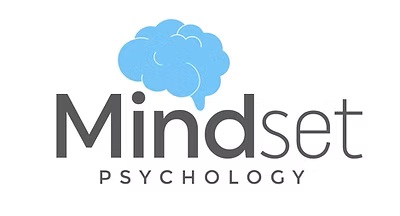In a world where the hustle and bustle of daily life can sometimes overwhelm us, it’s not uncommon for individuals to find themselves grappling with depression. This condition doesn’t discriminate, affecting people from all walks of life and potentially wreaking havoc on personal and professional spheres. In these moments, the world may seem a little less colorful, a little more daunting. It’s here, amidst the complexities of emotional turmoil, that the significance of reaching out to a depression therapist becomes not just a consideration, but a necessity. Mindset Psychology emerges as a sanctuary for those caught in the grips of depression, offering a beacon of hope through expert therapeutic care. This blog aims to shed light on the transformative journey individuals can embark upon with the guidance of a dedicated professional. With a focus on comprehensive, compassionate care, Mindset Psychology stands ready to guide individuals back to a place of brightness and hope, underscoring the importance of specialized support in navigating the challenging waters of depression.
Importance of Depression Therapies
Depression, a shadow that looms over an estimated 17.3 million adults in the U.S. alone, according to the National Institute of Mental Health, is a formidable adversary. Yet, it’s not invincible. A spectrum of therapies exists, ready to arm individuals with the tools needed for combat and eventual triumph over depression.
Depression therapies stand as a cornerstone in the battle against this pervasive condition, offering light in moments of darkness. Among the most effective treatments, Cognitive-Behavioral Therapy (CBT) and Interpersonal Therapy (IPT) shine brightly, each addressing the multifaceted nature of depression through distinct yet complementary approaches.
Cognitive-Behavioral Therapy (CBT) delves into the realm of thoughts and perceptions, equipping individuals with the tools to dismantle the fortress of negative thought patterns that depression often builds. By fostering an environment of self-awareness and empowerment, CBT encourages a shift towards positive thinking and behavior patterns, laying the groundwork for lasting recovery.
Interpersonal Therapy (IPT), on the other hand, casts a spotlight on the intricate web of personal relationships. Recognizing the profound impact that interpersonal issues can have on one’s emotional well-being, IPT works to mend these connections, facilitating healthier interactions and fostering a supportive network that can significantly alleviate depressive symptoms.
Venturing deeper into the psychological undercurrents, Psychodynamic Therapy offers a path to understanding the root causes of depression. This approach invites individuals to explore the depths of their unconscious mind, uncovering and addressing past traumas or unresolved conflicts that have silently fueled their depressive state. Through this journey of self-discovery, psychodynamic therapy paves the way for healing and personal growth.
In cases where therapy alone may not suffice, medication serves as a valuable ally in the fight against depression. Antidepressant medications can balance the chemical imbalances in the brain, providing relief and improving mood. Often, the most effective treatment plan combines medication with therapy, creating a multifaceted approach tailored to the individual’s unique needs.
The Role of a Depression Therapist
The role of a depression therapist transcends the traditional boundaries of healthcare, offering a beacon of hope to those engulfed in the shadows of depression. These specialized professionals are not merely counselors; they are architects of change, guiding their patients through the complex labyrinth of mental health with empathy, expertise, and enduring support.
Take the Next Step Toward Healing
You don’t have to navigate life’s challenges alone. Our Long Island therapists provide a safe, supportive space for you to heal and grow.
At the heart of their approach is the development of a personalized care plan, uniquely tailored to meet the individual needs of each patient. This plan is not a one-size-fits-all solution but a carefully crafted strategy that considers the patient’s personal history, current circumstances, and future aspirations. Through a collaborative process, therapists work closely with patients to uncover the root causes of their depression, whether they stem from unresolved traumas, ongoing stressors, or biochemical imbalances.
They employ a variety of therapeutic techniques to empower their patients. Cognitive-Behavioral Therapy (CBT), for example, equips individuals with practical skills to challenge and transform negative thought patterns. Interpersonal Therapy (IPT) focuses on improving communication and relationships, addressing social isolation, and fostering a sense of connection. Meanwhile, Psychodynamic Therapy offers a deeper dive into the unconscious mind, helping patients understand and resolve underlying emotional conflicts.
A key aspect of this role is to create a safe and supportive environment. Within this space, patients are encouraged to express their feelings without fear of judgment. This therapeutic relationship is foundational, offering the trust and security necessary for patients to explore their emotions and experiences openly.
Furthermore, they play a crucial role in monitoring progress and adjusting treatments as necessary. Mental health is not static; it evolves with life’s challenges and triumphs. Therapists continually assess the effectiveness of the treatment plan, making adjustments to ensure that it remains aligned with the patient’s evolving needs. This dynamic approach ensures that care is responsive and effective, even as circumstances change.
Beyond individual therapy sessions, they often work as part of a multidisciplinary team. This collaborative effort may include psychiatrists for medication management, nutritionists to address dietary factors, and fitness experts to incorporate physical wellness. By integrating various aspects of health, therapists ensure a holistic approach to treatment, recognizing that mental well-being is deeply interconnected with physical and emotional health.
Comprehensive Care At Mindset Psychology
Mindset Psychology is more than just a therapy center; it’s a wellness hub. By addressing key lifestyle factors such as fitness, diet, and spirituality, in conjunction with psychological health, Mindset Psychology crafts a multi-faceted treatment plan for each individual. Accessibility is also a cornerstone of their service, with in-network insurance plans including Aetna, United Healthcare, and several others, ensuring top-quality care is within reach.
Moreover, understanding the evolving needs of society, Mindset Psychology embraces technology by offering online therapy sessions. This option caters to those who prefer the convenience of virtual meetings or face challenges in accessing in-person services, ensuring no one is left behind in the journey to mental wellness.
Moving Forward
The journey out of the shadows of depression is arduous but not insurmountable, especially with the right support. Mindset Psychology invites anyone struggling with depression to discover the transformative impact of expert care. Embark on your path to better mental health today with the guidance of Mindset Psychology’s compassionate and experienced therapists and psychologists. Together, let’s turn the page towards a brighter chapter in your life.



